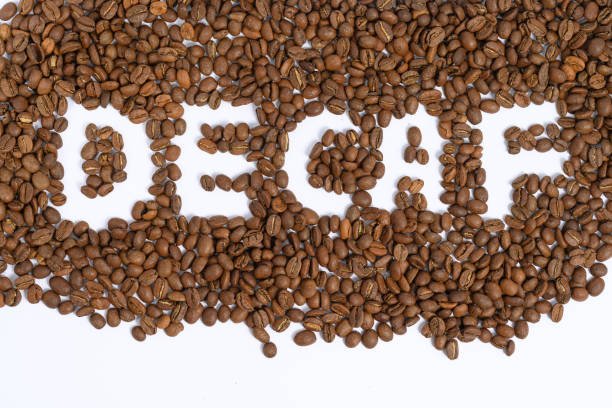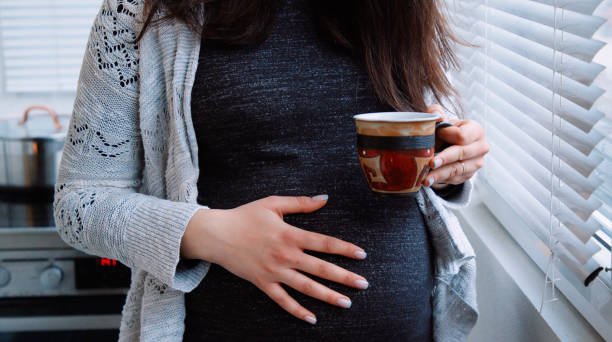For the vibrant cohort of women who adore the aroma and ritualistic warmth of their morning brew, the obstetrician’s decree to ‘de-caffeinate’ their beverage can feel like a cruel abdication of one of the few personal indulgences left unscathed by motherhood. Enter decaffeinated coffee, the elixir beloved by pregnant women, health aficionados, and even the casual coffee lover looking to sidestep caffeine jitters. But the question remains—is decaf coffee truly a safe gestational sip or a concern hidden in the steam?
Table of contents

The Warm Hug Without the Jitters: Decaf’s Ascendancy Among Expectant Mothers
Decaf coffee has enjoyed a surge in popularity among pregnant women over the years, largely due to the known risks of excessive caffeine consumption during pregnancy. The American College of Obstetricians and Gynecologists (ACOG) recommends no more than 200 milligrams of caffeine per day for women carrying a child, a limitation easily transgressed by a single cup of regular joe. The switch to decaf offers a solution that lets these women toast to the day without the accompanying concerns about fetal development.
Delving into the Health Perks of Decaf Coffee
Beside the obvious benefit of cutting out caffeine, decaf coffee still bestows some of the health boons traditionally attributed to its robust sibling. From a briefer reprieve from indigestion to a role in minimizing the risk of certain chronic diseases, decaf coffee can genuinely be part of a healthful pregancy diet.
Reducing the Caffeine Load
Caffeine is a vasoconstrictor, meaning it narrows blood vessels, potentially reducing the blood flow to the placenta. By choosing decaf, expecting mothers can enjoy the taste and warmth of coffee without compromising the burgeoning life within.
Potential Protective Properties
Studies suggest that coffee — even without the caffeine — is rich in antioxidants. These disease-fighting compounds can potentially help combat inflammation, an underlying concern in many pregnancy-related issues.
Understanding Caffeine Content in Decaf Coffee
“Decaf” coffee, short for “decaffeinated,” involves a specific processing technique that eliminates at least 97% of the caffeine traditionally found in coffee beans. It’s crucial to recognize that despite this significant reduction, decaf coffee is not entirely devoid of caffeine. A standard 8-ounce (240 mL) cup of brewed decaf coffee contains approximately 2.4 mg of caffeine. Similarly, a smaller decaf espresso shot of 2 ounces (60 mL) carries about 0.6 mg of caffeine, according to a trusted source.
When compared to other caffeine containing food and drinks, it becomes evident that decaf coffee has a dramatically lower caffeine content. For instance, a regular espresso may contain up to 127 mg of caffeine per 2-ounce serving, and standard brewed coffee can boast about 96 mg per 8-ounce cup. Even dark chocolate and energy drinks deliver a more substantial caffeine punch at 80 mg and 72 mg, respectively, for specified serving sizes.
However, it’s imperative for consumers, particularly pregnant women, to be cautious, as commercial decaf coffees can sometimes have higher caffeine concentrations than expected. One study uncovered that certain commercial decaf coffees could contain as much as almost 14 mg of caffeine per 16-ounce serving. This variation underlines the importance of verifying the caffeine content in decaf coffee, especially for those consuming multiple cups a day or those sensitive to caffeine.
Decaf Coffee During Pregnancy
When it comes to drinking decaf coffee during pregnancy, the consensus is that, owing to its minimal caffeine content, it is likely safe to consume in moderation. Yet, some have raised concerns linking decaf coffee consumption to an increased risk of miscarriage. These apprehensions largely stem from studies dated back to 1997 and 2018, which hinted at a higher risk of miscarriage with the consumption of 3 or more cups of decaf coffee during pregnancy. Nonetheless, authors of these studies have indicated that the observed correlations may be attributed to bias in the data rather than an inherent risk in decaf coffee itself.
While there are no official guidelines specifically addressing the consumption of decaf coffee during pregnancy, its significantly lower caffeine content suggests that moderate intake should not be a major concern. For expectant mothers aiming to minimize caffeine intake altogether, caffeine-free alternatives such as pregnancy-safe herbal teas, hot water with lemon and honey, golden milk, and non-alcoholic mulled cider could be more suitable options.
The Decaf Ounce of Prevention: Are There Risks to Reckon With?
While decaf coffee seems to offer a favorable risk-to-reward ratio, discerning if the potential benefits outweigh the risks is not without contention. With health decisions, especially regarding pregnancy, the rulebook is prudent and likely to err on the side of caution.
Uncovering Caffeine Content
Decaf is deceptively named, as a small amount of caffeine remains in the brew. This can vary by brand and preparation method, so it’s pivotal for expectant mothers to be vigilant readers of labels.
Shadow in the Brew: Methyl Chloride
The most common method for decaffeinating coffee involves using methyl chloride or ethyl acetate, both solvents known to have adverse health impacts when experienced in high concentrations. While the residue in decaf coffee is deemed to be at safe levels, the issue remains controversial.
Pregnancy’s Palate for Risks
Pregnancy alterations in hormone levels and metabolism can render expectant mothers more sensitive to compounds like solvents. While associations with miscarriage were found to be inconclusive, health authorities continue to advise caution.

The Voice of Reason: Counsel from Experts in Health
When it comes to pregnancy and health, individual experiences and circumstances leave room for nuance. Speaking to healthcare professionals, particularly those well-versed in nutrition and pregnancy, is a vital part of the decision-making process.
Navigating the Caffeine Dimension
Healthcare providers can provide contextualized caffeine counseling, tailoring their advice to the individual, assessing pre-existing conditions, and considering medications.
The Methyl Chloride Murmur
Some healthcare professionals argue that the solvents used in decaffeination are of little concern, given their low presence in coffee. Nevertheless, others encourage an organic, water-extraction process for peace of mind.
Anecdotal Brews: Sharing Stories of Pregnant Women and Decaf Decisions
Personal experiences often resonate, providing insights and empathetic reflections on an issue as personal as pregnancy and consumption habits. User tales are as crucial as they are comforting.
Comfort in Commiseration
For women accustomed to a daily dose of caffeine but heeding the pregnancy decree, switching to decaf can be a trying transition, sometimes necessitating trial and error to find the right balance.
Unlikely Heroes in the Cup
Pregnant women recount that decaf coffee has been a relief from the sensory ban in the first trimester, and health sanity in their quest to have their coffee and sup it too.
Brewing Perfection: The Art of Decaf Selection and Preparation
If one chooses the comforting path of decaf, doing it right is key. The nuances of decaf brewing can turn a tepid cup into a thrilling sip. Preparation is as crucial as choice.
Cracking the Caffeine Code
Understanding how different brands and methods leave distinct caffeine traces is step one. Opt for Swiss Water Process or CO2 methods, which entail no solvents and thus eliminate such concerns altogether.
The Decaf Décor
The ritual of preparing and savoring coffee often transcends the mere intake of the beverage. Investing in quality, fresh-ground beans and experimenting with brewing methods can elevate the decaf experience.

Steam Settles on the Cup: Concluding the Decaf Debate
The verdict, while never unanimous, leans toward the safety of decaffeinated coffee during pregnancy. It offers a compromise that captures the essence of coffee without the accompanying worries. Engage with your healthcare team, choose conscientiously, and sip your decaf in accordance with recommended limits, and it’s likely to serve as the perfect companion to your pregnancy.
While the debate may never be fully caffeinated, the consensus suggests that a mindful approach to decaf intake by pregnant women is reasonably safe and even beneficial. It stands as one of the few pleasures that pregnancy neither necessitates nor prohibits, but allows in moderated measure.
Reflecting on the cup of comfort that is decaf coffee during pregnancy underscores a broader theme of balance and informed choices in the delicate dance of health management. It’s not just about the coffee, but about the ethos of health — sipped, savored, and carried into the world of motherhood with each well-steeped moment.






